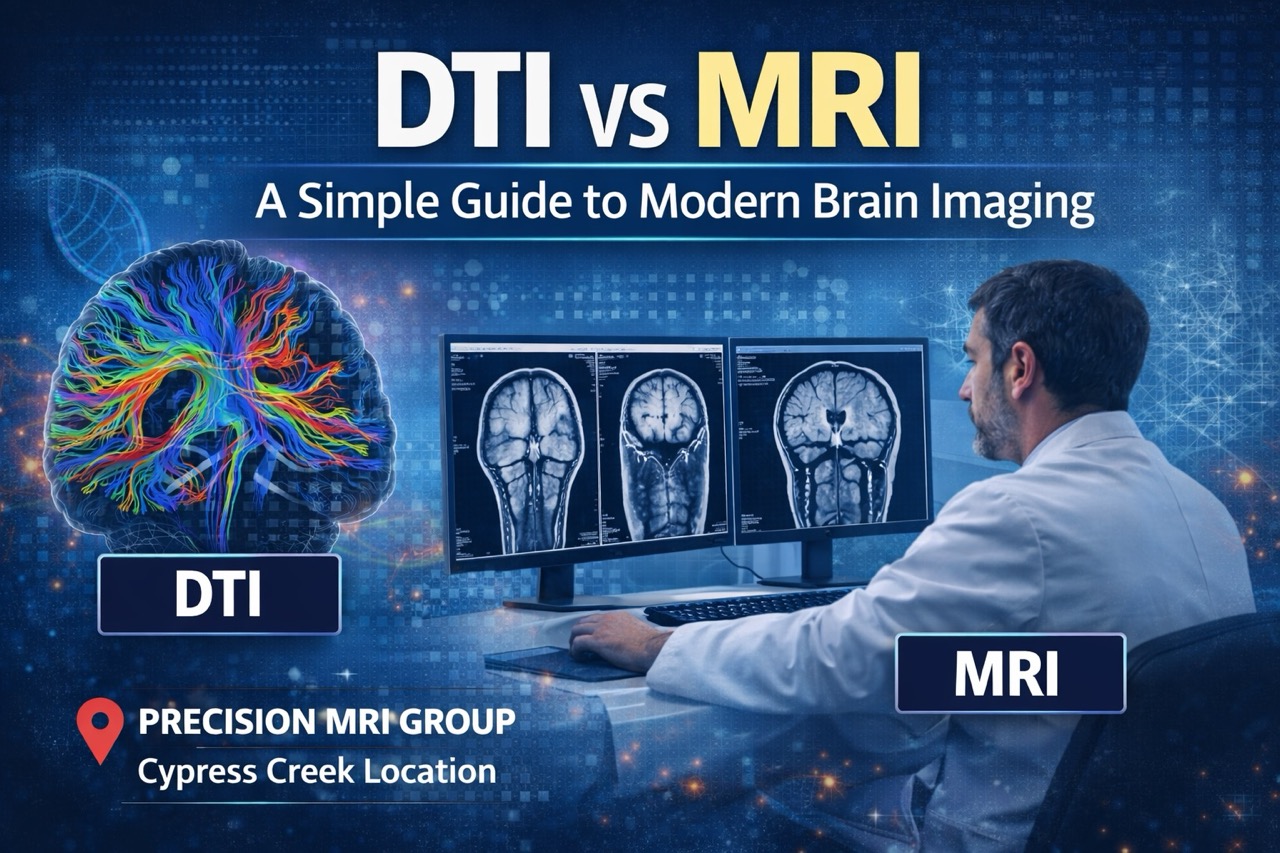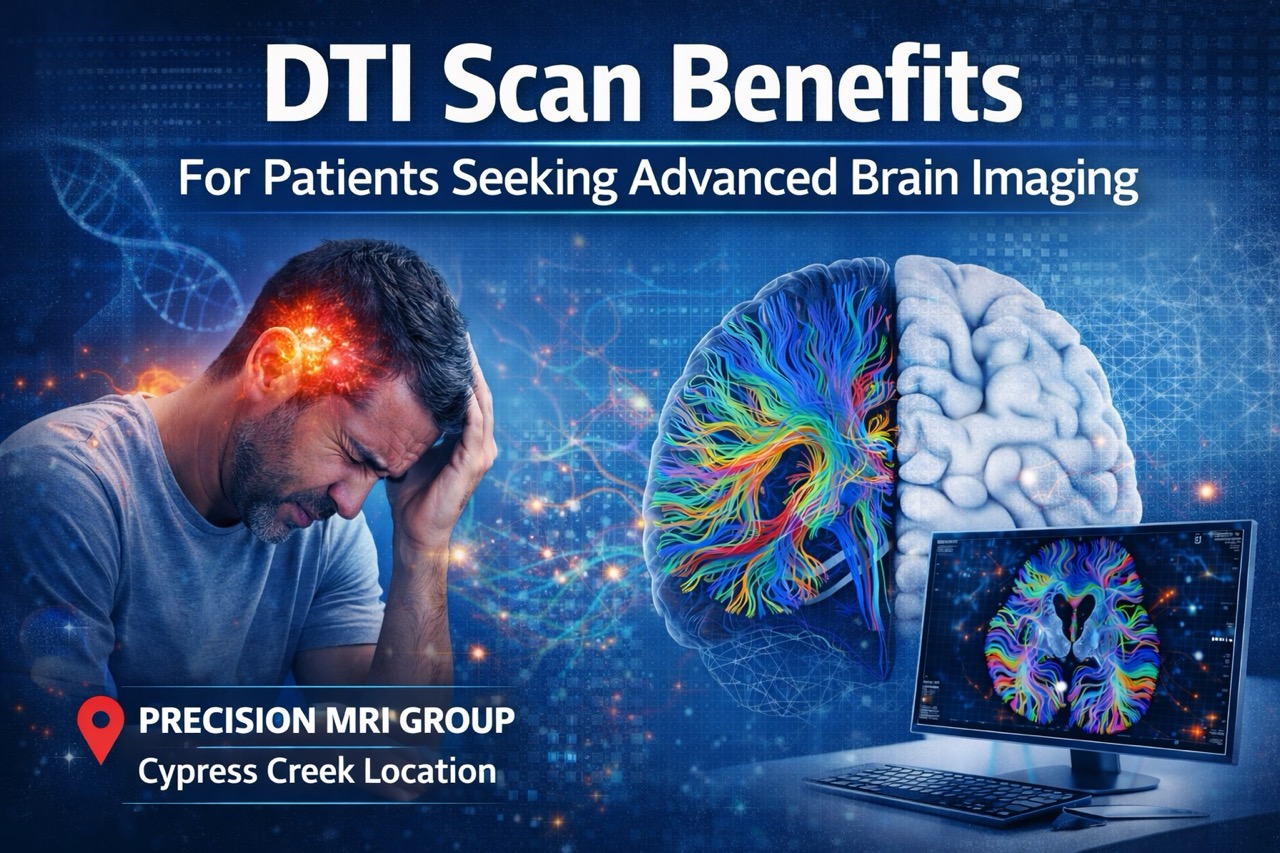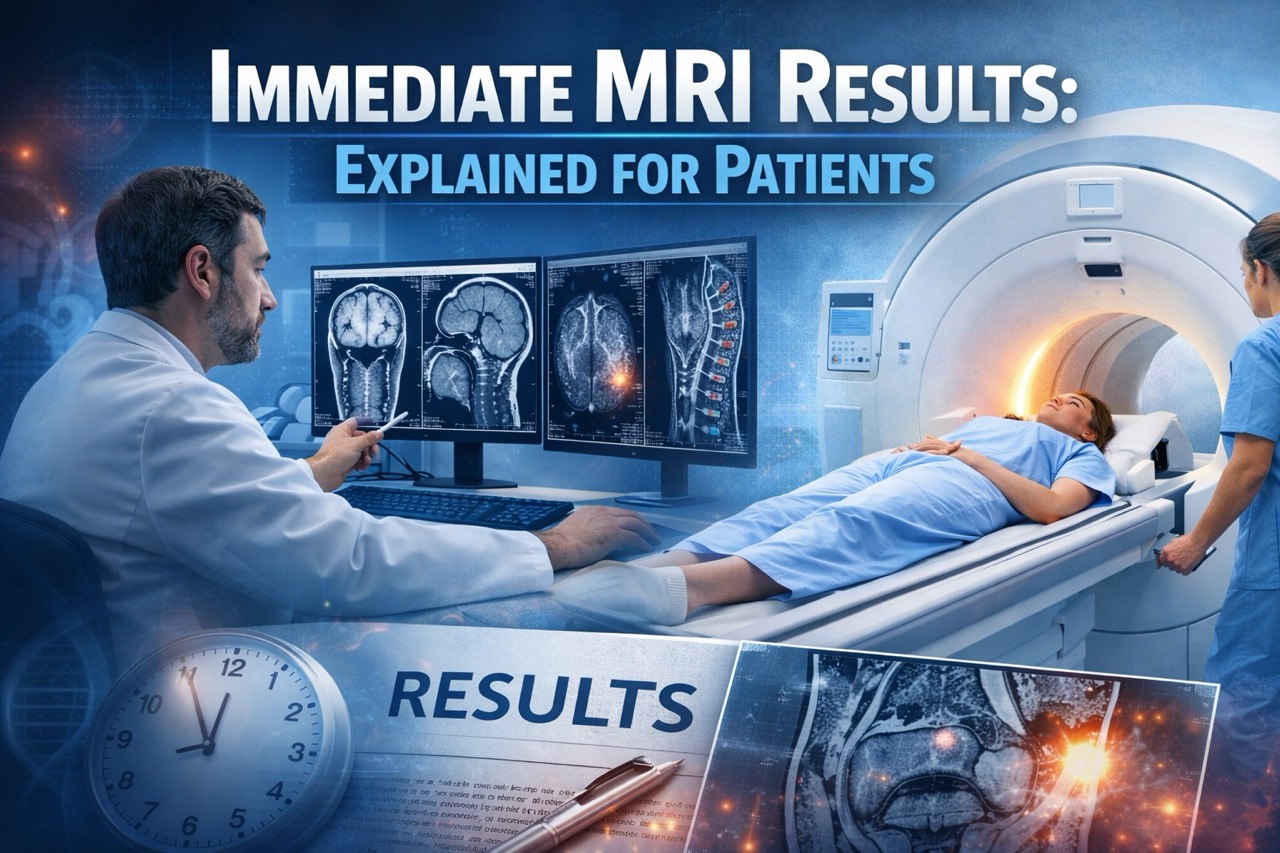Why MRI Is the Key to a More Accurate and Comfortable Prostate Biopsy
Worried about a prostate cancer diagnosis? You’re not alone and getting it right the first time is essential. Traditional biopsy methods often involve random sampling, which can miss serious tumors or detect ones that may never cause harm. That uncertainty can lead to stress, unnecessary procedures, or delayed treatment.
Modern medical imaging has transformed how prostate cancer is diagnosed, making the process more precise, less invasive, and far more reliable. At Precision MRI Group, we use advanced MRI technology to guide prostate biopsies with pinpoint accuracy. By clearly identifying suspicious areas, we help providers target the exact spots that matter most, reducing uncertainty and improving diagnostic confidence.
Whether your PSA levels are elevated, you’ve had an inconclusive biopsy, or you’re just seeking the most accurate diagnostic path, MRI-guided imaging offers peace of mind and reliable answers. In this blog, we’ll show how it works, what you can expect, and why patients across Florida trust Precision MRI Group for fast, comfortable, and compassionate care.
What Is a Prostate Biopsy and Why Accuracy Matters
A prostate biopsy is a medical procedure used to collect tissue samples from the prostate gland to determine if cancer cells are present. It is typically recommended when a patient has an elevated prostate-specific antigen (PSA) level or an abnormal result from a digital rectal exam (DRE). While biopsies are essential for confirming a prostate cancer diagnosis, not all biopsy methods offer the same level of accuracy.
Accuracy in prostate cancer diagnosis is critical. An inaccurate biopsy can either miss a cancer that needs treatment or detect a slow-growing cancer that may not pose a risk, leading to overtreatment. That is why healthcare providers are increasingly turning to advanced imaging techniques, such as MRI-guided prostate biopsies, to improve diagnostic precision and support better outcomes for patients.
How MRI Improves Biopsy Precision
Magnetic Resonance Imaging (MRI) provides a non-invasive, high-resolution view of the prostate. It can identify suspicious areas that might be missed with traditional ultrasound imaging. This makes MRI an invaluable tool in guiding biopsies directly to the most concerning areas within the gland.
MRI-guided biopsies use these detailed images to help physicians target the biopsy needle with far greater accuracy. Unlike traditional methods that take random samples, MRI-guided techniques allow radiologists and urologists to focus specifically on areas with abnormalities.
MRI Enhancements for Diagnostic Accuracy
- Detailed visualization: MRI clearly shows the size, shape, and location of suspicious lesions.
- Targeted sampling: Physicians can biopsy only the areas of concern, reducing unnecessary tissue sampling.
- Reduced false negatives: With better targeting, MRI-guided biopsies are less likely to miss clinically significant cancers.
MRI-Guided vs Traditional Prostate Biopsy: Key Differences
Traditional biopsies, typically performed with transrectal ultrasound (TRUS), take 10–12 random tissue samples from the prostate. This approach can miss cancerous areas, especially if tumors are located in parts of the gland not sampled during the procedure.
In contrast, MRI-guided prostate biopsies use either direct in-bore MRI guidance or MRI-ultrasound fusion technology. Fusion biopsy combines real-time ultrasound with previously captured MRI images to enhance targeting accuracy.
| Feature | Traditional Biopsy | MRI-Guided Biopsy |
|---|---|---|
| Imaging method | Ultrasound | MRI or MRI-ultrasound fusion |
| Sampling technique | Random | Targeted |
| Detection of aggressive cancer | Moderate | High |
| Risk of overdiagnosis | Higher | Lower |
| Invasiveness | Moderate | Similar or slightly less |
Benefits of Multiparametric MRI (mpMRI)
Multiparametric MRI (mpMRI) is an advanced type of MRI scan that uses multiple imaging sequences to provide comprehensive information about prostate tissue. It combines anatomical and functional data to differentiate between benign and malignant areas.
Advantages of mpMRI:
- Improves tumor localization
- Distinguishes aggressive tumors from harmless ones
- Reduces unnecessary biopsies
- Helps in monitoring low-risk cancers
According to a study, mpMRI identified 93% of clinically significant cancers compared to 48% with traditional biopsies. Additionally, a 2021 NEJM study found MRI-targeted biopsies increased detection rates of significant prostate cancer while reducing diagnosis of clinically insignificant cases.

Who Needs an MRI Before a Biopsy?
Not everyone with prostate health concerns needs an immediate biopsy. MRI, especially multiparametric MRI (mpMRI), can help doctors decide whether a biopsy is necessary—and if so, where to focus it. This imaging approach improves accuracy, reduces unnecessary procedures, and gives patients a clearer understanding of their condition. Here are the groups who may benefit most from a prostate MRI before a biopsy:
Men with elevated PSA levels but a prior negative biopsy
An elevated PSA level often raises concerns about prostate cancer. However, a traditional biopsy may sometimes return negative results even if cancer is present—especially if the cancer is in a hard-to-reach area. In these cases, an MRI-guided prostate biopsy can identify suspicious regions that were previously missed, allowing for more accurate sampling.
Patients under active surveillance for low-risk prostate cancer
Men diagnosed with low-risk prostate cancer are often monitored instead of treated right away. This strategy, called active surveillance, depends on accurate tracking of the cancer’s progress. Multiparametric MRI offers a non-invasive way to monitor the prostate over time, helping physicians decide if the cancer remains stable or if it’s time for intervention.
Individuals with abnormal DRE findings
If a doctor feels a lump or irregularity during a digital rectal exam (DRE), imaging is the next step. An MRI provides a detailed view of the prostate, helping to confirm or clarify what the DRE suggested. It can also guide where a biopsy should be performed, improving diagnostic precision and patient outcomes.
Those looking to minimize unnecessary biopsy procedures
Traditional biopsies are invasive and carry risks such as bleeding, infection, or discomfort. For men who prefer to avoid unnecessary procedures, MRI in Florida offers a safer, more strategic alternative. If no suspicious areas are seen on the MRI, a biopsy may not be needed at all. This helps reduce overdiagnosis and the anxiety that often comes with ambiguous biopsy results
What to Expect During an MRI at Precision MRI Group
At Precision MRI Group, we understand that undergoing an MRI can feel overwhelming. That’s why we focus on making your experience as smooth and reassuring as possible. From the moment you arrive until your scan is complete, our team is dedicated to providing clear communication, personalized support, and a relaxing atmosphere tailored to your needs. Here’s what patients can expect:
- Advanced MRI technology: Our state-of-the-art scanners produce high-resolution images for precise diagnostics.
- Fast results: We deliver most reports within 24 to 48 hours. In emergency situations, we prioritize immediate processing.
- Board-certified radiologists: Experienced professionals interpret your scans with the highest level of expertise.
- Patient-first environment: Our staff creates a calm and welcoming space, helping to reduce anxiety during your MRI.
- Flexible scheduling: We offer late evening and weekend appointments to fit your schedule.
- Multilingual care: Our team speaks English, Spanish, and Creole to ensure clear communication.
- Free transportation: For your convenience, we provide complimentary transport to and from our facility.
Patients undergoing a prostate MRI can expect to lie comfortably on a table while the scanner captures detailed images of the prostate. The procedure is non-invasive and typically takes 30 to 45 minutes.
Why Patients Across Florida Trust Precision MRI Group
Choosing the right imaging provider can make all the difference in your healthcare journey, especially when it comes to something as important as prostate cancer diagnosis. Across Florida, more and more patients are turning to Precision MRI Group not just for our advanced technology, but for the trust, transparency, and support we offer every step of the way. Here’s what sets us apart:
- Accuracy: Our MRI technology provides the clarity needed to support targeted, effective biopsies.
- Efficiency: Quick turnaround times support faster treatment planning.
- Accessibility: From free transportation to evening appointments, we work around your needs.
- Comfort: Every patient receives personalized care in a relaxing, professional setting.
- Expertise: Our board-certified radiologists and experienced staff deliver results you can trust.
Take Control of Your Prostate Health—Schedule Your MRI at Precision MRI Group Today
Accurate prostate cancer diagnosis starts with the right imaging. MRI-guided biopsies offer precision, speed, and comfort, helping you avoid unnecessary procedures and get the answers you need. At Precision MRI Group, our advanced technology and compassionate care ensure a smooth experience every step of the way.
Don’t wait to take charge of your health. Contact Precision MRI Group now to schedule your prostate MRI in Florida. With fast appointments, free transportation, and clear results, we make your path to confident diagnosis easier than ever.
Precision MRI Group provides several conveniently located facilities in Florida:
-
Pembroke Pines
9696 Pines Blvd., Pembroke Pines, FL 33024
Phone: (954) 391-7844, Contact: Amalia (amalia@pinesimagingcenter.com) -
Lake Worth
2311 10th Ave N Suite #2 and Suite #1, Lake Worth, FL 33461
Phone: (561) 623-8346, Contact: Marisol (marisol@mriprecision.com) -
Cypress Creek
2122 NW 62nd Street, Suite 107, Ft. Lauderdale, FL 33309
Phone: (954) 677-1069, Contact: Latoya Reid (latoya@cypresscreekmri.com) -
Port St Lucie
879 E Prima Vista Blvd #2, Port St. Lucie, FL 34952
Phone: (772) 344-7566, Contact: Laura Schwenzer (laura@mriprecision.com)
Your health deserves clarity, comfort, and confidence—start your diagnostic journey with Precision MRI Group today.




